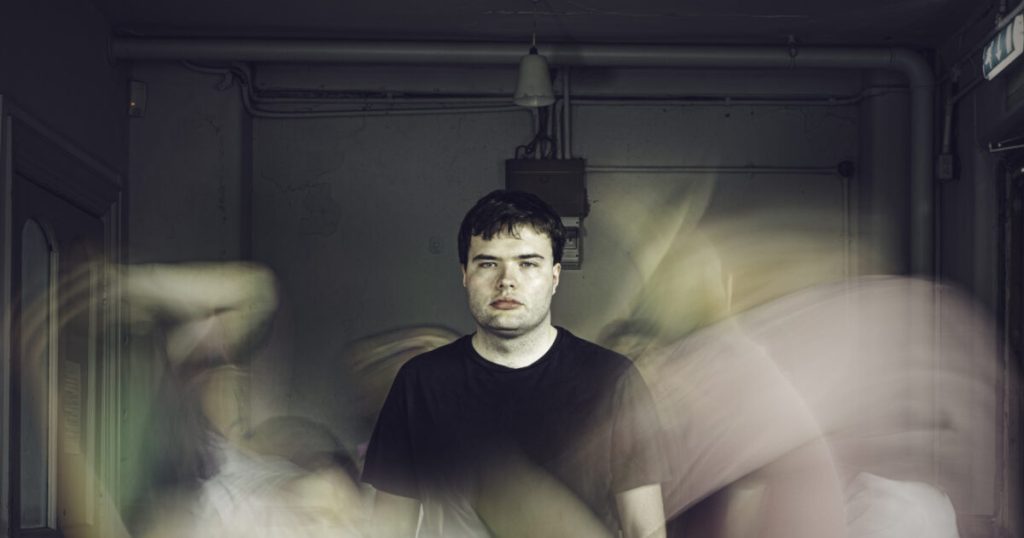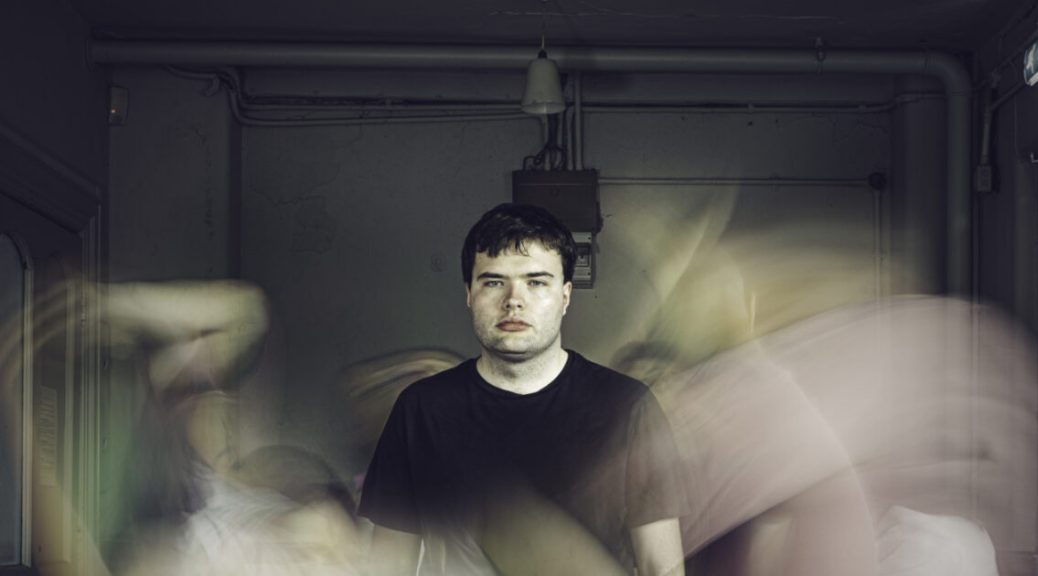
Life expectancy for a neurodivergent person in Britain is anything between 14 and 18 years shorter than the rest of the population. This issue was further exacerbated by Covid when risk of death was more than three times greater for disabled people. Choreographer Karol Cysewski explores this startling inequality in our health system with three neurodivergent performers and three dancers. The resulting work, Requiem, is a meditative, almost spiritual lament for those lost, and yet it retains a hopefulness, a stirring refusal to give in, that inspires and provokes.
Chapter is a contemporary arts centre at the heart of its Cardiff community – performers Clark, Tadd and Relf attend the Hijinx Academy there each week – and yet it was carved out of the remnants of a turn-of-the-twentieth-century school. From the beginning of Requiem it again becomes an institution from the Victorian age – cracked red brick and bath tile walls harking to an outdated hospital system in need of change. As we enter the foyer, we see trails of fingers running along wire-enforced windowpanes – behind the glass, bedecked in white, there are ghosts, demons, possibly angels. Cicolani, Fedorvykh and Rust lead us further inside the main promenade space.
Ruby Brown’s design – a maze of hospital curtains – is a dark fever dream of a set, lit cinematically by Sophie Erin Moore. It is nightmarish, all rails and cloth and upturned beds. It tells of a labyrinthine system impossible to navigate. It is easy to become lost, disoriented, in the half-lit space.
Requiem is a series of vignettes played out in these small, curtained voids. Gareth Clark, Andrew Tadd and Aaron Relf contend with the dancers for attention, for their voices to be heard. Much of this communication is physical, Cysewski’s choreography pushing and pulling them against and among the dancers in white. Cicolani, Fedorovykh and Rust are at times grim reaper, at times healthcare workers desperately trying to work out how to help their patients. An especially poignant moment is when Harlan Rust’s doctor frustratedly asks Andrew Tadd how he expects to be helped if he can’t say what’s wrong with him. It is a small moment that speaks volumes of the dangers faced by people with communication barriers, and the lack of time and resources afforded NHS staff. Although a dance piece, Requiem may have benefitted from more of these verbal exchanges. Aaron Relf’s Shakespeare soliloquy as he is pulled further into the darkness is deeply moving, even chilling, forming the words as if an almost silent prayer. Gareth Clark simply saying, “I want to live,” reminds us that the threat to our neurodivergent community within the healthcare system is not just a shameful statistic but a very pertinent, heartbreaking threat to each individual.
For all the horror (an especially resonant image is a patient being grabbed by disembodied limbs emerging from under his bed) Cysewski’s choreography, backed magnificently by Sion Orgon’s ecclesiastical soundscape, is wonderfully meditative, allowing the audience to process the difficult truths with which they are confronted. When all six performers conjoin and glide around one another there are moments of genuine beauty and joy amidst the madness. And in the performances of Clark, Relf and Tadd there are moments of real, raging defiance.
Requiem
Chapter, Cardiff
4th-6th July 2024 at Chapter, Cardiff
Choreographer: Karol Cysewski
Designer: Ruby Brown
Lighting Designer: Sophie Erin Moore
Sound Designer: Sion Orgon
Dramaturg / Additional Text: Simon Harris
Producer: Simon Harris
Performers: Gaia Cicolani, Gareth Clark, Kseniia Fedorovykh, Aaron Relf, Harlan Rust, Andrew Tadd
Running time: 1 hour

